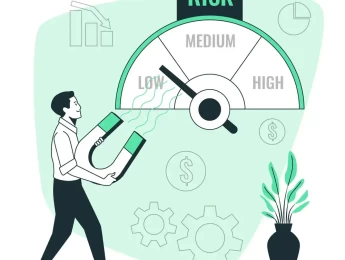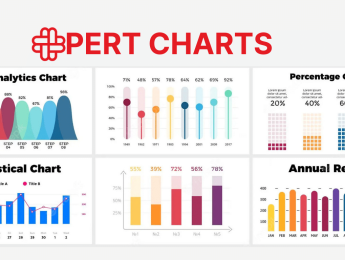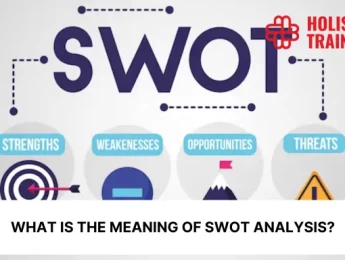- Table of Contents
- Introduction
- Communication:
- Collaboration:
- Change Management:
- 1. IT and Automation:
- 3. Understanding Cost-to-Serve:
- 4. Project Management:
- 5. Supply Chain Optimisation and Modeling:
- 6. Inventory Management and Forecasting:
- 7. Procurement and Sourcing Strategies:
- 8. Logistics and Distribution Planning:
- 9. Advanced Data Analytics and Big Data:
- 10. ERP Proficiency:
- 11. Lean Manufacturing and Six Sigma:
- 12. Global Trade Compliance and Regulations:
- 13. Supply Chain Sustainability:
- 14. Budget Management:
- 14. Accounting Skills:
- 1. Emotional Intelligence:
- 2. Negotiation:
- 3. Strategic Thinking and Decision Making:
- 4. Leadership and Team Management:
- 5. Problem-Solving and Analytical Skills:
- 6. Time Management:
- 7. Stakeholder Management:
- 8. Change Management:
- 9. Interpersonal Skills:
- 10. Adaptability and Flexibility:
- 11. Cultural Intelligence:
- 12. Resilience:
- Negotiation Scenarios for Supply Chain Managers
- Why Do Negotiation Skills Matter?
- Cost Optimisation:
- Mistakes to Avoid in Negotiation
- 1. Lack of Preparation:
- 2. Poor Communication:
- 3. Rigidity:
- 4. Ignoring Relationships:
- 5. Focusing Solely on Price:
- 10 Tips to Improve Your Supply Chain Skills
- Conclusion
Introduction
Navigating the intricate web of global commerce requires a unique blend of expertise and finesse. Welcome to the world of supply chain management, where efficiency, resilience, and adaptability reign supreme. In this comprehensive guide, we'll delve into the essence of supply chain management, explore the multifaceted role of a supply chain manager, dissect the essential hard and soft skills required for success, unravel the intricacies of negotiation, and arm you with invaluable tips to elevate your supply chain prowess.
Understanding Supply Chain Management
At its core, supply chain management orchestrates interconnected processes that drive the flow of goods and services from production to consumption. It encompasses the planning, sourcing, manufacturing, logistics, and distribution activities essential for delivering products to customers efficiently and effectively. A well-managed supply chain can distinguish between business success and failure in today's dynamic marketplace.
The Role of a Supply Chain Manager
Supply chain managers are the maestros conducting this symphony of operations. They oversee every aspect of the supply chain, from procurement and production to distribution and delivery. Their responsibilities extend beyond mere coordination; they must anticipate potential disruptions, optimise processes for cost-effectiveness, and foster collaboration across various stakeholders. Essentially, they are the linchpins holding the entire supply chain ecosystem together.
The 3 Cs of Supply Chain Leadership
Effective supply chain leadership hinges on mastering three pivotal elements: communication, collaboration, and change management.
Communication:
Clear and concise communication is the cornerstone of effective supply chain management. Supply chain managers must adeptly convey strategies, expectations, and updates to stakeholders across departments, suppliers, and customers. Whether it's articulating inventory requirements or negotiating with vendors, the ability to communicate effectively is non-negotiable.
Collaboration:
In today's interconnected business landscape, collaboration is not just advantageous; it's imperative. Supply chain managers must cultivate strong relationships with suppliers, partners, and internal teams to streamline operations and drive innovation. By fostering a culture of collaboration, they can harness collective expertise to overcome challenges and seize opportunities.
Change Management:
The only constant in the supply chain universe is change. Whether it's market fluctuations, technological advancements, or regulatory shifts, supply chain managers must navigate these changes with agility and foresight. Embracing innovation, adapting to evolving circumstances, and proactively mitigating risks is essential to effective change management in supply chain leadership.
Top 15 Hard Skills for Supply Chain Managers in 2024
Mastering the intricacies of supply chain management requires a robust arsenal of hard skills. Here are the top 15 hard skills every supply chain manager should possess in 2024:
1. IT and Automation:
In the digital age, technology is the backbone of supply chain operations. Supply chain managers must understand Information Technology (IT) systems and automation solutions to streamline processes, enhance visibility, and improve efficiency. Whether it's implementing Warehouse Management Systems (WMS), utilising Transportation Management Systems (TMS), or harnessing the power of Internet of Things (IoT) devices, mastery of IT and automation is paramount.
2. Economics and Market Dynamics:
Supply chain managers must navigate a complex web of economic factors and market dynamics that influence supply and demand. Understanding macroeconomic trends, geopolitical risks, and industry-specific challenges is essential for making informed decisions and devising effective supply chain strategies. By staying attuned to market fluctuations and consumer behaviour, supply chain managers can proactively adjust sourcing, production, and distribution strategies to mitigate risks and capitalise on opportunities.
3. Understanding Cost-to-Serve:
The cost-to-serve analysis evaluates the total cost incurred in serving customers throughout the supply chain. This includes the direct costs of production and logistics and indirect costs such as inventory holding, transportation, and order fulfilment. Supply chain managers must deeply understand cost drivers and profitability metrics to optimise processes, identify cost-saving opportunities, and enhance overall profitability.
Metric | Description | Importance |
Inventory Turnover | Rate of inventory sold and replenished | Measure the efficiency of inventory management |
On-Time Delivery | Percentage of orders delivered on time | Reflects reliability and customer satisfaction |
Supply Chain Costs | Total expenses associated with the supply chain | Gauge operational efficiency and cost-effectiveness |
Order Fulfillment | Time taken to fulfil customer orders | Indicator of responsiveness and efficiency |
Supplier Performance | Evaluation of supplier quality and reliability | Impact on overall supply chain effectiveness |
Table 1: Metrics Every Supply Chain Manager Should Measure
4. Project Management:
Supply chain projects, whether implementing new technologies, optimising processes, or expanding into new markets, require meticulous planning, execution, and monitoring. Supply chain managers must possess strong project management skills to ensure that initiatives are completed on time, within budget, and with the desired outcomes. Effective project management is essential for driving continuous improvement and innovation within the supply chain, from defining project scopes and timelines to allocating resources and managing risks.
5. Supply Chain Optimisation and Modeling:
Optimisation lies at the heart of supply chain management, and supply chain managers must leverage advanced analytical tools and modelling techniques to optimise processes, networks, and resource allocations. Whether designing efficient distribution networks, optimising inventory levels, or maximising production efficiency, supply chain optimisation enables organisations to minimise costs, improve service levels, and enhance competitive advantage.
6. Inventory Management and Forecasting:
Balancing inventory levels with demand forecasts is a perpetual challenge for supply chain managers. Effective inventory management requires robust forecasting methodologies, real-time visibility into inventory levels, and agile response mechanisms to fluctuations in demand and supply. By optimising inventory turnover, minimising stockouts, and reducing excess inventory, supply chain managers can enhance customer satisfaction, reduce costs, and improve overall efficiency.
7. Procurement and Sourcing Strategies:
Procurement is pivotal in supply chain management, influencing product quality, cost, and availability. Supply chain managers must develop strategic sourcing plans, conduct supplier evaluations, and negotiate contracts to secure favourable terms and ensure a reliable supply of goods and services. Supply chain managers can drive value creation and competitive advantage by fostering long-term partnerships with suppliers, mitigating supply chain risks, and optimising procurement processes.
8. Logistics and Distribution Planning:
Logistics and distribution are the arteries of the supply chain, facilitating the movement of goods from production facilities to end customers. Supply chain managers must optimise transportation routes, warehouse layouts, and distribution channels to minimise lead times, reduce costs, and enhance service levels. Whether it's leveraging Just-in-Time (JIT) delivery strategies, implementing cross-docking facilities, or utilising third-party logistics providers, effective logistics planning is essential for ensuring seamless supply chain operations.
9. Advanced Data Analytics and Big Data:
In the era of big data, supply chain managers must harness the power of advanced analytics to derive actionable insights and drive informed decision-making. From predictive analytics for demand forecasting to prescriptive analytics for supply chain optimisation, data-driven approaches enable organisations to identify patterns, anticipate risks, and capitalise on opportunities. By leveraging data analytics tools and technologies, supply chain managers can enhance visibility, agility, and responsiveness across the supply chain.
10. ERP Proficiency:
Enterprise Resource Planning (ERP) systems serve as the nerve centre of supply chain operations, integrating various business functions and enabling seamless coordination across departments. Supply chain managers must possess proficiency in ERP systems to manage inventory, procurement, production, and distribution activities effectively. Supply chain managers can optimise processes, streamline workflows, and improve decision-making by leveraging ERP functionalities such as demand planning, material requirements planning (MRP), and order management.
11. Lean Manufacturing and Six Sigma:
Lean manufacturing and Six Sigma methodologies are proven approaches for driving operational excellence and continuous improvement within the supply chain. Supply chain managers must understand lean manufacturing principles, such as minimising waste, optimising processes, and maximising efficiency. Similarly, Six Sigma methodologies, focused on reducing defects and variability, can help organisations achieve higher levels of quality and performance. According to a LinkedIn article, by utilising methodologies such as Six Sigma and conducting process capability analysis, data-driven insights play a crucial role in streamlining operations, minimising errors, and boosting overall productivity.
12. Global Trade Compliance and Regulations:
In an increasingly interconnected world, navigating the complexities of global trade regulations and compliance requirements is essential for supply chain managers. From customs duties and import/export regulations to trade agreements and sanctions, supply chain managers must ensure adherence to legal and regulatory frameworks to mitigate risks and avoid penalties. Supply chain managers can facilitate smooth cross-border transactions and minimise compliance-related disruptions by staying abreast of international trade laws, leveraging trade management software, and collaborating with legal experts.
13. Supply Chain Sustainability:
Sustainability has emerged as a critical imperative for supply chain management, driven by environmental concerns, regulatory pressures, and consumer expectations. Roughly 30% of supply chain professionals report that their companies set explicit sustainability goals for their suppliers, according to WifiTalents . Supply chain managers must integrate sustainability principles into sourcing, production, and distribution practices to minimise environmental impact, promote ethical sourcing, and enhance corporate social responsibility. By adopting sustainable practices such as eco-friendly packaging, renewable energy sourcing, and ethical supply chain auditing, organisations can align their supply chains with broader sustainability goals and create long-term value for stakeholders.
14. Budget Management:
Effective budget management is essential for optimising resource allocations, controlling costs, and maximising ROI within the supply chain. Supply chain managers must develop and oversee budgets for various initiatives, projects, and operational expenses while balancing cost considerations with performance objectives. Supply chain managers can ensure fiscal responsibility and contribute to overall organisational profitability by monitoring expenditures, identifying cost-saving opportunities, and optimising resource utilisation.
14. Accounting Skills:
Understanding financial principles and interpreting financial data is essential for supply chain managers to make informed decisions and drive strategic initiatives. Supply chain managers must possess basic accounting skills to analyse cost structures, evaluate profitability, and assess financial performance within the supply chain. By leveraging financial metrics such as Return on Investment (ROI), Total Cost of Ownership (TCO), and Operating Income, supply chain managers can optimise resource allocation, identify areas for improvement, and drive bottom-line results.
In summary, mastering these 15 hard skills empowers supply chain managers to navigate the complexities of global commerce, optimise supply chain operations, and drive sustainable growth and competitive advantage for their organisations. Whether leveraging technology, optimising processes, or ensuring compliance, proficiency in these hard skills is indispensable for success in the dynamic and fast-paced world of supply chain management.
12 Most Important Soft Skills for Supply Chain Managers
In addition to hard skills, supply chain managers must possess a repertoire of soft skills to thrive in their roles. Here are the 12 most important soft skills for supply chain managers:
1. Emotional Intelligence:
Emotional intelligence encompasses the ability to recognize, understand, and manage one's own emotions and those of others. Supply chain managers must possess emotional intelligence to navigate diverse stakeholder relationships, resolve conflicts diplomatically, and inspire team trust and collaboration. Supply chain managers can build strong relationships, enhance communication, and foster a positive work environment by fostering empathy, self-awareness, and social skills.
2. Negotiation:
Negotiation is a cornerstone of supply chain management, permeating interactions with suppliers, partners, and internal stakeholders. Supply chain managers must possess strong negotiation skills to advocate for their organisation's interests, secure favourable terms, and resolve conflicts effectively. Whether negotiating pricing, contracts, or delivery schedules, adept negotiation enables supply chain managers to achieve mutually beneficial outcomes and strengthen relationships across the supply chain ecosystem.
3. Strategic Thinking and Decision Making:
Supply chain managers must think strategically and make informed decisions to drive business objectives and optimise supply chain performance. Strategic thinking involves assessing long-term goals, identifying opportunities, and aligning resources and initiatives with organisational priorities. By leveraging data, market insights, and industry trends, supply chain managers can make strategic decisions that enhance competitiveness, mitigate risks, and create sustainable value for their organisations.
4. Leadership and Team Management:
Effective leadership is essential for inspiring and empowering teams to achieve their full potential and deliver exceptional results. Supply chain managers must lead by example, foster a culture of accountability and collaboration, and provide guidance and support to team members. Supply chain managers can build high-performing teams capable of driving innovation and adapting to evolving challenges by cultivating a shared vision, setting clear expectations, and recognising and developing talent.
5. Problem-Solving and Analytical Skills:
Supply chain management faces challenges and uncertainties, requiring strong problem-solving and analytical skills. Whether addressing supply chain disruptions, optimising processes, or mitigating risks, supply chain managers must identify issues, analyse root causes, and implement effective solutions. By leveraging data analytics, critical thinking, and creative problem-solving techniques, supply chain managers can overcome obstacles and drive continuous improvement within the supply chain.
6. Time Management:
With myriad responsibilities and competing priorities, effective time management is essential for supply chain managers to maximise productivity and meet deadlines. Supply chain managers must prioritise tasks, allocate resources efficiently, and optimise workflows to ensure timely project and initiative execution. By implementing time-saving strategies, delegating tasks effectively, and leveraging productivity tools, supply chain managers can enhance efficiency and minimise bottlenecks within the supply chain.
7. Stakeholder Management:
Supply chain management involves collaboration and coordination with diverse stakeholders, including suppliers, customers, internal teams, and external partners. Supply chain managers must possess strong stakeholder management skills to build and maintain relationships, communicate effectively, and align interests and expectations. Supply chain managers can cultivate mutually beneficial partnerships and drive collective success by understanding stakeholders' needs, proactively addressing concerns, and fostering trust and transparency.
8. Change Management:
In today's dynamic business environment, supply chain managers must be adept at navigating change and leading teams through periods of transition and uncertainty. Change management involves anticipating and managing resistance to change, communicating effectively, and fostering team resilience and adaptability. Supply chain managers can minimise disruption and facilitate successful organisational transformations by championing innovation, empowering employees, and providing support and guidance through change initiatives.
9. Interpersonal Skills:
Effective communication and interpersonal skills are essential for building rapport, resolving conflicts, and fostering collaboration within the supply chain ecosystem. Supply chain managers must be able to communicate clearly and persuasively, listen actively, and navigate diverse cultural and organisational dynamics. Supply chain managers can strengthen relationships and facilitate effective collaboration across the supply chain by fostering open dialogue, demonstrating empathy, and building trust and credibility.
10. Adaptability and Flexibility:
Supply chain management is inherently dynamic, characterised by evolving market conditions, technological advancements, and regulatory changes. Supply chain managers must be adaptable and flexible, capable of adjusting strategies, processes, and priorities in response to shifting circumstances. Supply chain managers can position their organisations for resilience and success in an ever-changing landscape by embracing change, remaining agile, and proactively anticipating and addressing challenges.
11. Cultural Intelligence:
In an increasingly globalised supply chain ecosystem, cultural intelligence is essential for navigating diverse cultural norms, customs, and communication styles. Supply chain managers must possess cultural sensitivity and awareness to build effective relationships and collaborate across borders and cultures. By demonstrating respect, curiosity, and openness to cultural differences, they can bridge cultural divides, foster inclusivity, and drive collaboration and innovation on a global scale.
12. Resilience:
Supply chain management is fraught with uncertainty and volatility, requiring supply chain managers to possess resilience and perseverance in adversity. Resilience involves bouncing back from setbacks, learning from failures, and maintaining a positive attitude and a sense of purpose amidst challenges. Supply chain managers can navigate obstacles, inspire confidence, and lead their teams with strength and determination through turbulent times by cultivating resilience.
In short, mastering these 12 soft skills is essential for supply chain managers to excel in their roles, drive collaboration and innovation, and navigate the complexities of the modern supply chain landscape. Supply chain managers can inspire trust, foster collaboration, and drive sustainable success by honing emotional intelligence, negotiation prowess, strategic thinking, and leadership capabilities.
Negotiation Scenarios for Supply Chain Managers
Negotiation is fundamental to supply chain management, permeating every interaction with suppliers, partners, and internal stakeholders. Here are some common negotiation scenarios supply chain managers may encounter:
- Negotiating pricing and terms with suppliers to secure favourable contracts.
- Resolving disputes or discrepancies in deliveries, quality, or service levels.
- Collaborating with internal teams to align procurement strategies and budget allocations.
- Balancing cost considerations with quality requirements when selecting vendors or sourcing materials.
- Negotiating lead times and delivery schedules to meet customer demands while minimising inventory costs.
Why Do Negotiation Skills Matter?
Negotiation skills are not merely advantageous but indispensable in supply chain management. Here's why:
Cost Optimisation:
Negotiation skills play a pivotal role in optimising costs throughout the supply chain. By adeptly negotiating pricing, terms, and contracts with suppliers, supply chain managers can secure favourable deals that drive down procurement costs, enhance profitability, and improve the bottom line. Effective negotiation enables supply chain managers to maximise value and minimise expenses, Whether negotiating bulk discounts, favourable payment terms, or volume-based incentives.
Risk Mitigation:
Effective negotiation is critical for mitigating risks associated with supply chain disruptions, quality issues, and contractual disputes. Supply chain managers can establish accountability, mitigate potential liabilities, and safeguard against unforeseen contingencies by negotiating clear terms, warranties, and service-level agreements with suppliers. Additionally, adept negotiation can help resolve conflicts swiftly and prevent minor issues from escalating into major disruptions that could disrupt operations or damage reputation.
Relationship Building:
Negotiation is not just about securing favourable deals; it's also about building and nurturing long-term relationships with suppliers, partners, and internal stakeholders. Effective negotiation involves listening, understanding, and addressing the interests and concerns of all parties involved, fostering trust, mutual respect, and collaboration. Supply chain managers can create a supportive ecosystem that fosters innovation, reliability, and shared success by cultivating strong relationships based on open communication, transparency, and integrity.
Conflict Resolution:
Conflict is inevitable in the supply chain, whether disagreements over pricing, delivery schedules, or product quality. Negotiation skills are essential for resolving conflicts amicably and finding mutually acceptable solutions that preserve relationships and maintain business continuity. Supply chain managers must be able to navigate conflicts diplomatically, address underlying issues, and find win-win outcomes that satisfy all parties involved. By fostering a constructive dialogue and compromise culture, supply chain managers can effectively manage conflicts and maintain productive relationships across the supply chain ecosystem.
Strategic Advantage:
In today's competitive marketplace, negotiation skills provide a strategic advantage for supply chain managers seeking to differentiate their organisations and gain a competitive edge. Whether negotiating exclusive partnerships, favourable terms with key suppliers, or advantageous pricing agreements, adept negotiation enables supply chain managers to position their organisations for success. Supply chain managers can create strategic advantages that drive growth, innovation, and market leadership by leveraging their negotiation prowess to secure preferential treatment, access to scarce resources, or early access to market trends.
In summary, negotiation skills are not just a valuable asset but a fundamental requirement for success in supply chain management. Effective negotiation is essential for driving value, mitigating risks, and fostering collaboration across the supply chain ecosystem, from cost optimisation and risk mitigation to relationship building and strategic advantage. By honing their negotiation skills, supply chain managers can navigate complex negotiations with confidence, integrity, and agility, driving sustainable success and creating lasting value for their organisations.
Mistakes to Avoid in Negotiation
While negotiation can yield significant benefits, certain pitfalls must be avoided to ensure successful outcomes. Here are some common mistakes that supply chain managers should steer clear of:
1. Lack of Preparation:
One of the most critical mistakes in negotiation is going into a discussion unprepared. Failure to research market conditions, understand supplier dynamics, or define negotiation objectives can weaken your position and undermine your bargaining power. Supply chain managers must invest time and effort in thorough preparation, including researching market trends, assessing supplier capabilities, and defining negotiation goals and strategies. By arming themselves with relevant information and insights, supply chain managers can negotiate from a position of strength and maximise their chances of success.
2. Poor Communication:
Effective communication is essential for successful negotiation, yet many negotiations falter due to miscommunication or ambiguity. Supply chain managers must articulate their requirements, expectations, and constraints clearly and concisely to avoid misunderstandings and facilitate productive discussions. Additionally, active listening is crucial for understanding the other party's perspective, identifying common ground, and finding mutually acceptable solutions. By fostering open and transparent communication, supply chain managers can build trust, minimise conflicts, and enhance the likelihood of reaching a favourable agreement.
3. Rigidity:
Being too rigid or inflexible during negotiations can hinder progress and impede collaboration. Supply chain managers must be willing to explore alternative solutions, compromise on certain terms, and adapt to changing circumstances to achieve mutually beneficial outcomes. Rigidity can lead to stalemates, breakdowns in communication, and missed opportunities for value creation. Supply chain managers can overcome obstacles, build rapport, and forge stronger relationships with suppliers and partners by demonstrating flexibility and openness to creative solutions.
4. Ignoring Relationships:
Neglecting to nurture relationships with suppliers or partners can be a costly mistake in negotiation. Building and maintaining trust-based relationships is essential for fostering collaboration, resolving conflicts, and achieving mutually beneficial outcomes. Supply chain managers must invest time and effort in cultivating relationships with key stakeholders, demonstrating integrity, reliability, and respect, and seeking win-win solutions that prioritise long-term partnerships over short-term gains. Supply chain managers can lay the foundation for successful negotiations and sustainable business relationships by prioritising relationship-building efforts.
5. Focusing Solely on Price:
While price negotiation is a common focus in supply chain management, fixating solely on price can be shortsighted. When negotiating with suppliers, supply chain managers must consider other factors, such as quality, reliability, delivery schedules, and service levels. By taking a holistic approach to negotiation and considering the total value proposition offered by suppliers, supply chain managers can optimise outcomes and balance cost savings and quality assurance. Additionally, emphasising value-based negotiations can foster collaboration and incentivise suppliers to invest in innovation and continuous improvement.
In summary, avoiding these common negotiation mistakes is essential for supply chain managers seeking to achieve successful outcomes and build strong, sustainable relationships with suppliers and partners. Supply chain managers can navigate negotiations effectively, mitigate risks, and drive value creation across the supply chain ecosystem by prioritising preparation, communication, flexibility, relationship-building, and value-based negotiation strategies.
10 Tips to Improve Your Supply Chain Skills
Continuous improvement is the cornerstone of success in supply chain management. Here are ten actionable tips to enhance your supply chain skills and excel in your role:
1. Continuous Learning:
Stay abreast of industry trends, best practices, and emerging technologies by investing in ongoing education and professional development. Attend workshops, webinars, and conferences, enrol in online courses, and join professional associations to expand your knowledge and stay ahead of the curve. By embracing a mindset of lifelong learning, you can acquire new skills, deepen your expertise, and remain competitive in the dynamic field of supply chain management.
2. Networking:
Build relationships with peers, mentors, and industry experts to exchange insights, seek advice, and expand your professional network. Join supply chain forums, LinkedIn groups, and networking events to connect with like-minded professionals and tap into diverse perspectives and experiences. By fostering meaningful connections and leveraging your network, you can gain valuable insights, access new opportunities, and accelerate your career growth in supply chain management.
3. Cross-Functional Collaboration:
Collaborate with colleagues from different departments, such as sales, marketing, finance, and operations, to gain a holistic understanding of the business and identify opportunities for optimisation. Engage in cross-functional projects, participate in interdepartmental meetings, and seek input from diverse stakeholders to uncover synergies and drive innovation within the supply chain. By breaking down silos and fostering collaboration across functions, you can streamline processes, enhance visibility, and improve overall performance.
4. Data-Driven Decision Making:
Leverage data analytics and business intelligence tools to make informed decisions and drive performance improvements within the supply chain. Collect and analyse relevant data on key performance indicators (KPIs), such as inventory turnover, on-time delivery, and supplier performance, to identify trends, patterns, and areas for improvement. By harnessing the power of data-driven insights, you can optimise processes, mitigate risks, and drive continuous improvement across the supply chain.
5. Process Optimisation:
Continuously evaluate and refine supply chain processes to enhance efficiency, reduce costs, and improve customer satisfaction. Conduct regular process audits, solicit stakeholder feedback, and identify bottlenecks or inefficiencies that impede workflow. Implement process improvements, automation solutions, and best practices to streamline operations, eliminate waste, and enhance productivity. You can drive tangible results and deliver value to your organisation and customers by prioritising process optimisation.
6. Risk Management:
Proactively identify and mitigate risks across the supply chain to safeguard against disruptions and ensure business continuity. Conducted risk assessments, analysed potential threats, and developed contingency plans to mitigate risks such as supplier dependencies, geopolitical instability, natural disasters, and regulatory changes. Adopting a proactive approach to risk management can minimise vulnerabilities, enhance resilience, and protect your organisation from unforeseen challenges.
7. Adaptability:
Embrace change and cultivate adaptability to navigate evolving market dynamics, technological advancements, and customer preferences. Stay agile and responsive to the supply chain ecosystem's emerging trends, disruptions, and opportunities. Foster a culture of innovation, experimentation, and continuous improvement to drive organisational agility and maintain a competitive edge in the marketplace. By embracing change with resilience and flexibility, you can position your organisation for sustained success in a rapidly changing environment.
8. Communication Skills:
Hone your communication skills to articulate strategies, build consensus, and foster collaboration across diverse stakeholders within the supply chain. Clearly communicate goals, expectations, and feedback to internal teams, suppliers, and customers to ensure alignment and understanding. Listen actively, ask clarifying questions, and seek input from others to promote open dialogue and enhance decision-making. You can build trust, resolve conflicts, and drive collective action within the supply chain ecosystem by mastering effective communication techniques.
9. Leadership Development:
Invest in developing your leadership capabilities to inspire and empower teams to achieve their full potential and drive positive change within the supply chain. Lead by example, cultivate a shared vision, and provide mentorship and guidance to team members to foster a culture of accountability, innovation, and continuous improvement. By developing your leadership skills, you can build high-performing teams, navigate complex challenges, and drive organisational success in the fast-paced world of supply chain management.
10. Feedback and Reflection:
Solicit feedback from peers, supervisors, and stakeholders to identify areas for improvement and foster continuous growth and development. Reflect on your experiences, successes, and challenges within the supply chain, and leverage them as opportunities for learning and growth. Embrace a growth mindset, seek out constructive feedback, and commit to ongoing self-improvement to enhance your supply chain skills and drive professional success.
In short, by embracing these ten tips, you can enhance your supply chain skills, drive continuous improvement, and succeed as a supply chain professional. Whether leveraging data-driven insights, fostering collaboration, or cultivating leadership capabilities, investing in your development as a supply chain manager is essential for driving organisational excellence and delivering value to stakeholders across the supply chain ecosystem.
Conclusion
In conclusion, mastering the art of supply chain management requires a multifaceted skill set encompassing hard and soft skills. Supply chain managers can navigate the global marketplace's complexities confidently and competently by cultivating effective communication, collaboration, and change management capabilities, honing negotiation skills, and embracing lifelong learning. Whether optimising processes, mitigating risks, or driving innovation, the journey to supply chain excellence begins with a commitment to continuous improvement and professional development.
If you're ready to embark on a journey to enhance your supply chain skills and unlock new career opportunities, consider enrolling in our comprehensive course, " Supply Chain Management and Logistics ." Our course offers in-depth training on essential concepts, practical strategies, and cutting-edge technologies to equip you with the knowledge and skills needed to excel in today's dynamic supply chain landscape. Join us and take the first step towards mastering the art of supply chain management and achieving your professional goals!


























